Product news: With three new Deore groupsets, Shimano is shaking up the affordable mountain bike segment for the 2021 model year. With three gears for 12-speed, 11-speed or 10-speed, two different brakes and some new cassettes for microspline and for conventional freewheels, the Shimano Deore 2021 impresses not least with its versatility.
How the time flies! It's been four years since Sram ushered in the 12-speed era with its Eagle circuit on modern mountain bikes. Since then, the Americans have been in a head-to-head race with the Far Eastern competition from Shimano, and we bikers are presented with new groupsets with 12 gears every year. As is usual with all innovations, the high-end groupsets always come first; in this case XX1 or X01 for Sram and XTR for Shimano. Last year, Sram added a 12-speed drivetrain for the entry-level range with the SX Eagle, while Shimano gave its mid-range groupsets a 12th sprocket with the XT and SLX.
For the 2021 season, Shimano will now also offer a 12-speed groupset for the slightly cheaper price segment: The Shimano Deore M6100. But that's not all: with the M5100 and M4100 series, the Deore family has grown even further, with eleven and ten gears respectively. As a result, Shimano should certainly be more strongly represented in cheaper entry-level bikes from the coming season.

Shimano Deore M6100: The new 12-speed price/performance king?
The Deore group from Shimano has stood for reliable, proven performance for ambitious beginners at an extremely attractive price for many years. A glance at the key data of the new M6100 group is enough to see that nothing will change in the future either. As usual from Shimano, the Deore group "inherits" numerous features that were previously reserved for higher quality groups. In addition to the 12 gears and the 10-51 cassette, this also applies to the new brakes with levers and the cranks.

510% bandwidth and microspline freewheel
The new Shimano Deore M6100 is a pure 1-speed group. However, friends of two chainrings are served with the other two new Deore series - but more on that in a moment. Accordingly, with regard to the M6100, the most important and decisive question is: Which cassettes will there be and how large will the bandwidth be? Shimano keeps it very clear in this regard, because the only cassette in the new Deore group comes with a gradation of 10-51 and a corresponding 510% range!

With its 10-51 cassette, which is already used in various versions in the XT(R) and SLX, Shimano set a surprising exclamation mark for many. Not only was it possible to surpass Sram's 10-50 cassette in terms of bandwidth, but the Japanese also decided to use a new freehub with Microspline. After the wheel manufacturers initially reacted somewhat sluggishly to the new standard, Microspline freewheels are now available from almost all major hub manufacturers.
 The fact that the actual entry-level group now also gets the enormously wide range of cassettes is quite surprising to us. On the one hand, you get a huge range that is unrivaled in the entry-level range, but you also need a wheel or hub with a Microspline freewheel, which has always pushed up the costs noticeably, at least so far. However, that could change in the future – time will tell.
The fact that the actual entry-level group now also gets the enormously wide range of cassettes is quite surprising to us. On the one hand, you get a huge range that is unrivaled in the entry-level range, but you also need a wheel or hub with a Microspline freewheel, which has always pushed up the costs noticeably, at least so far. However, that could change in the future – time will tell.
Unfortunately, Shimano is still silent about the weight, but reveals that the cassette is made entirely of stainless steel. It should therefore be slightly heavier than the SLX cassette, whose largest sprocket is made of aluminum and weighs 530g. For the new Deore CS-M6100 cassette we would then assume almost 600g. On the plus side, however, in addition to the better durability due to the steel construction, it should also be able to book an extremely attractive price - after all, the SLX cassette is already available for less than 70 euros. If the new Deore cassette breaks the 50 euro mark, that would be a real declaration of war and puts the possible surcharge through a Microspline freewheel into perspective.
Responsible for the sprocket change is the tandem of RD-M6100 rear derailleur, which is of course equipped with the in-house Shadow+ damping and visually stands out clearly from its predecessor, and the SL-M6100 shift lever. The latter is now also available in the I-Spec EV version, allowing a large adjustment range and mounting on the correspondingly compatible brake lever.
Angular, hollow forged crank with 30 or 32 teeth
Of course, no new groupset is complete without the appropriate cranks - and somehow they are always a bit the figurehead of the series. In the case of the Deore M6100, Shimano relies on a bold, angular, futuristic design that doesn't look like an entry-level component at all and, in our opinion, casually outperforms some of the more expensive cranks. The hollow forged aluminum crank is available ex works with a 30 or 32 blade, which is attached via direct mount. Since the chainrings of the XT, SLX and XTR cranks are compatible, these can also be installed later.
The crank arms are either 170mm or 175mm long, with the Q-factors there are even three of them with 172mm, 178mm and 181mm. The group is supplemented by the two groupless MT510 and MT511 cranks, which will probably be found primarily on complete bikes.
Brakes with two or four pistons
Exciting things continue: The new Deore brakes are coming onto the market in two versions. The BR-M6100 brake caliper with its two brake calipers is designed more for the touring and XC area, its bigger brother, the BR-M6120 with four pistons, on the other hand, also reliably brings an enduro to a standstill. The same sensor is provided for both brake calipers - this is definitely worth mentioning because, for example, popular combinations of a four-piston caliper at the front and two pistons at the rear are easily possible. The encoder itself is technically and optically based on the counterparts from the SLX and XT series. It is supported on the handlebars and should therefore provide a slightly crisper pressure point.
Shimano Deore M5100 and M4100
With the two product groups M5100 and M4100, Shimano is now also following the course within the Deore family that the Japanese had previously taken with the GRX Gravel group. There, too, there are several levels within a “group family” that differ in terms of price and features. In the case of the new Deore group, this is primarily reflected in the number of gears - the M5100 is an 11-speed group, the M4100 has 10 gear steps.

Depending on the targeted price point, the two new Deore products should represent a really attractive option for retrofitters and manufacturers. The possibility of installing a front derailleur means that finely graduated drives with a large bandwidth can be implemented here, which could be useful, for example, on entry-level bikes for the XC area or for sporty trekking bikes. Especially for those who want to retrofit individual components or the entire group, the omission of the Microspline freewheel should come in handy; Conversely, this also means that the cassettes have to do without the 10 sprocket.
New cassettes for 1x and 2x drivetrains
The two new Deore groupsets for 2021 bring some exciting new features, especially when it comes to cassettes and chainrings. For those who want to do without a front derailleur, there is a new 11-5100 cassette in the 11-speed system of the M51, the 10-speed system of the M4100 gets an 11-46 variant. On the other hand, if you still prefer to use two chainrings, you can use the 36-26 crank with 11-42 cassettes.

A total of three different rear derailleurs are responsible for a quick change of the sprockets. The RD-M5100 is intended exclusively for the 1×11 drive, has the appropriate Shadow+ damping and offers enough capacity for the powerful 11-51 cassette. The counterpart for the 2-speed drive is called RD-M5120, but is also used in all 10-speed combinations with one or two chainrings. Last but not least, there is the inexpensive M4120 rear derailleur, which is only intended for gears with two chain rings and front derailleurs because it does not have damping.
The compatibility between 10-speed and 11-speed drives of the new Deore components is quite interesting, because that was not the case with Shimano in the past. Conversely, this also means that the transmission ratio between the rear derailleur and the shift lever has changed - so combining it with existing components from older series should be difficult. As soon as we have more detailed information on this, you will find out.
Inexpensive entry-level brakes with two or four pistons, but without the servo wave
The MT410 (2-piston) and MT420 brakes are the cheapest disc representatives of the new Deore group and fortunately also available with four pistons. This makes them a very good choice for e-bikes, for example. The fact that you have to do without Servo-Wave for the brake lever is certainly bearable, depending on the area of application.
Shimano Deore 2021: prices and availability
As always with Shimano product presentations, we can't give any precise information on the prices at the moment. But if we assume the current street prices of the M7100 SLX group, which is around 350 euros in the version without front derailleur including brakes, we should be looking at a real price breaker. By June at the latest, light should also come into the darkness when it comes to price – then the group should be available in stores.

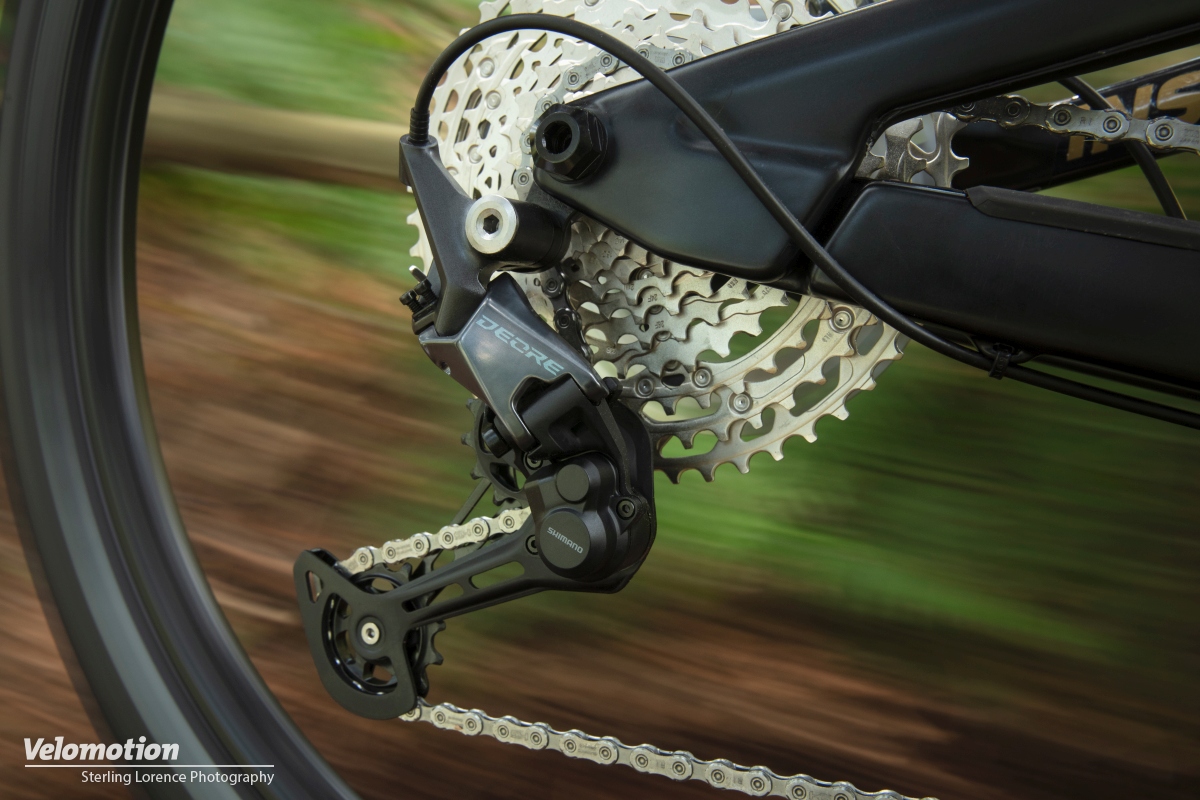
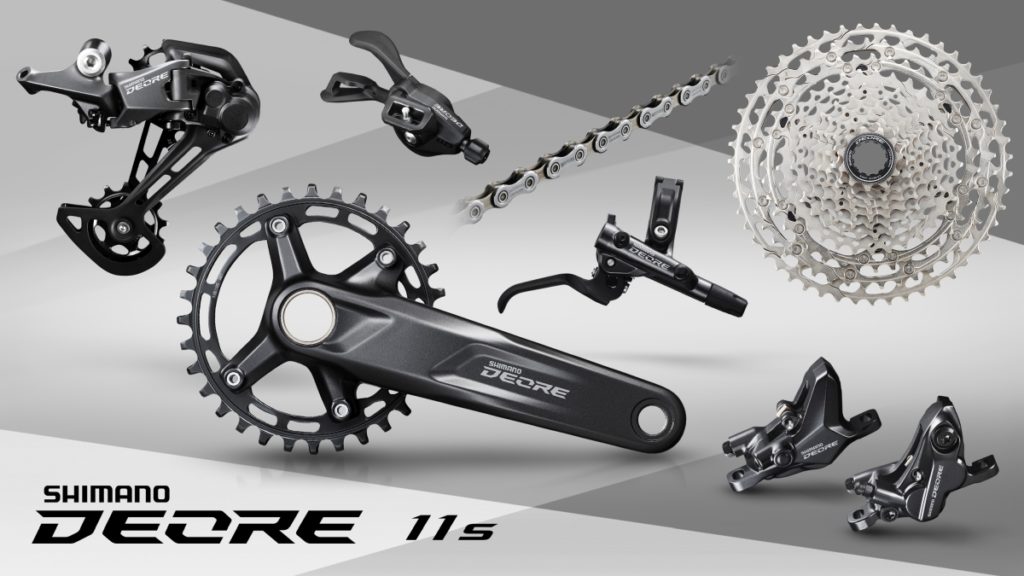
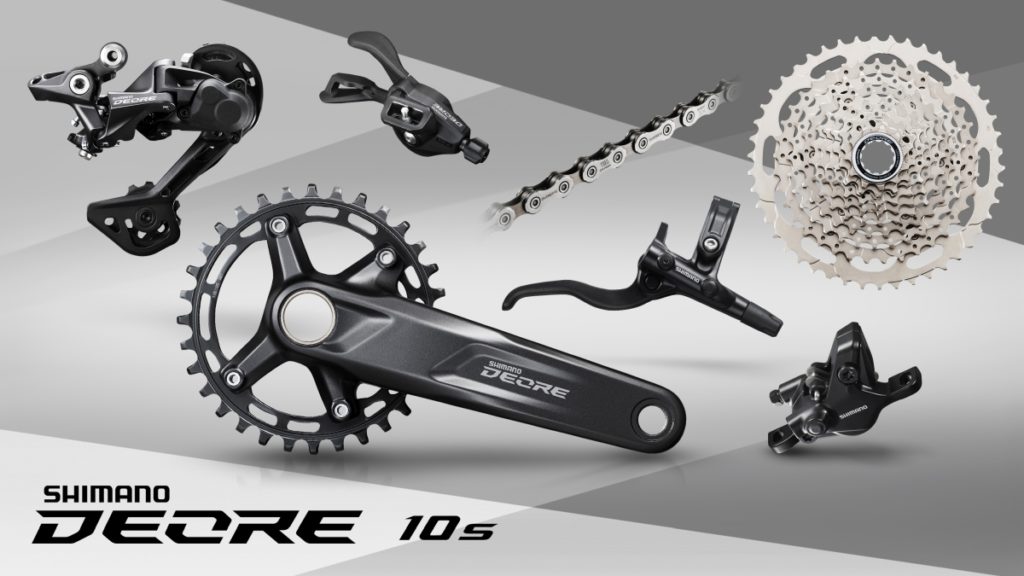



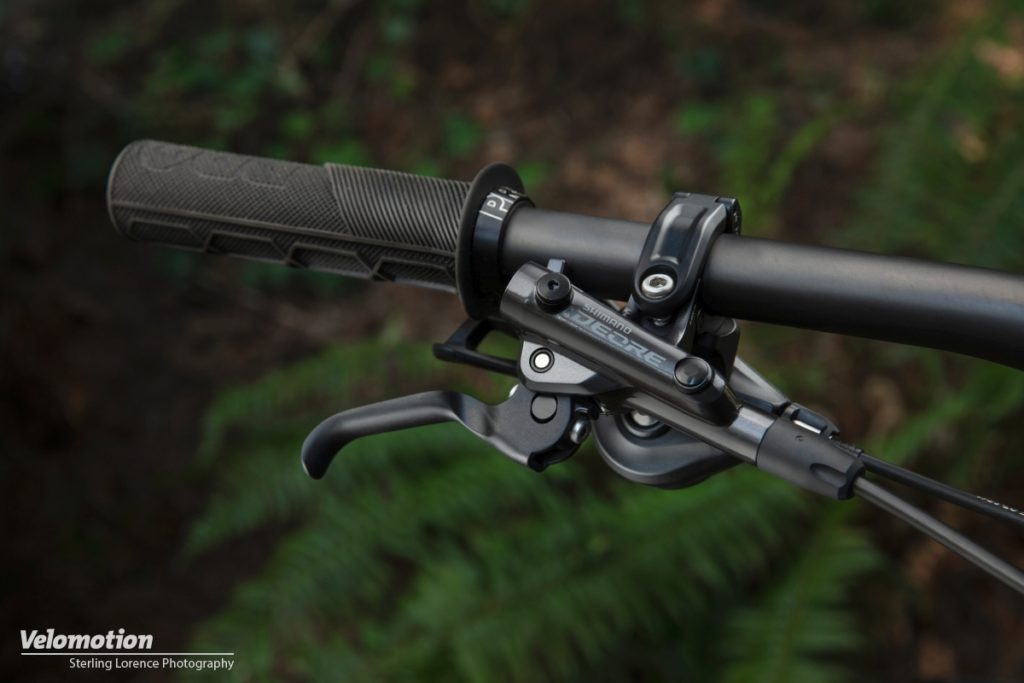
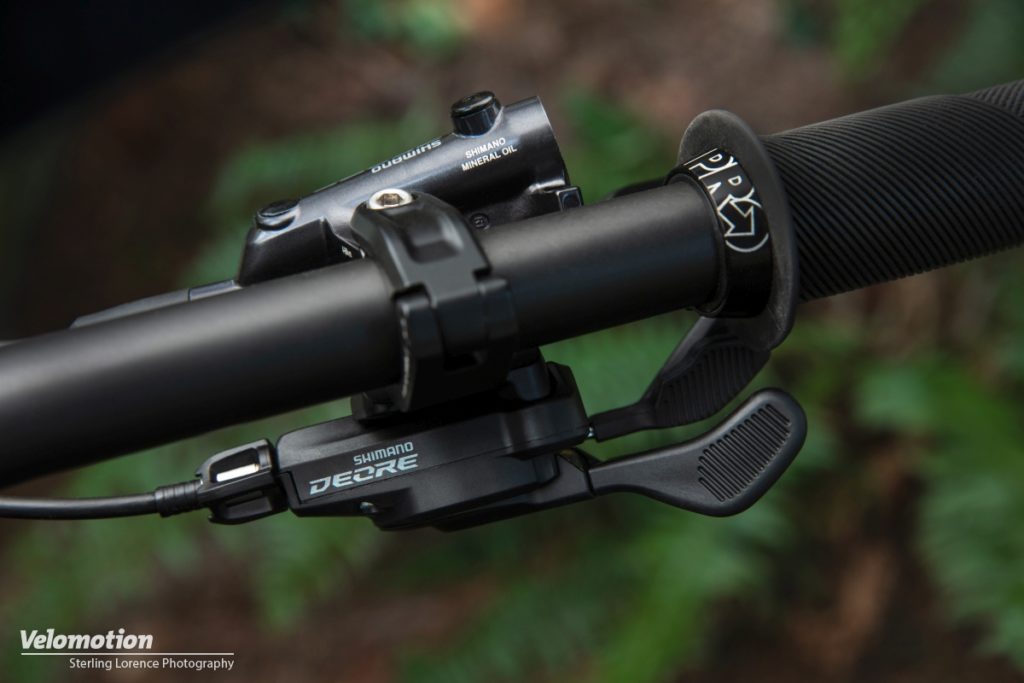
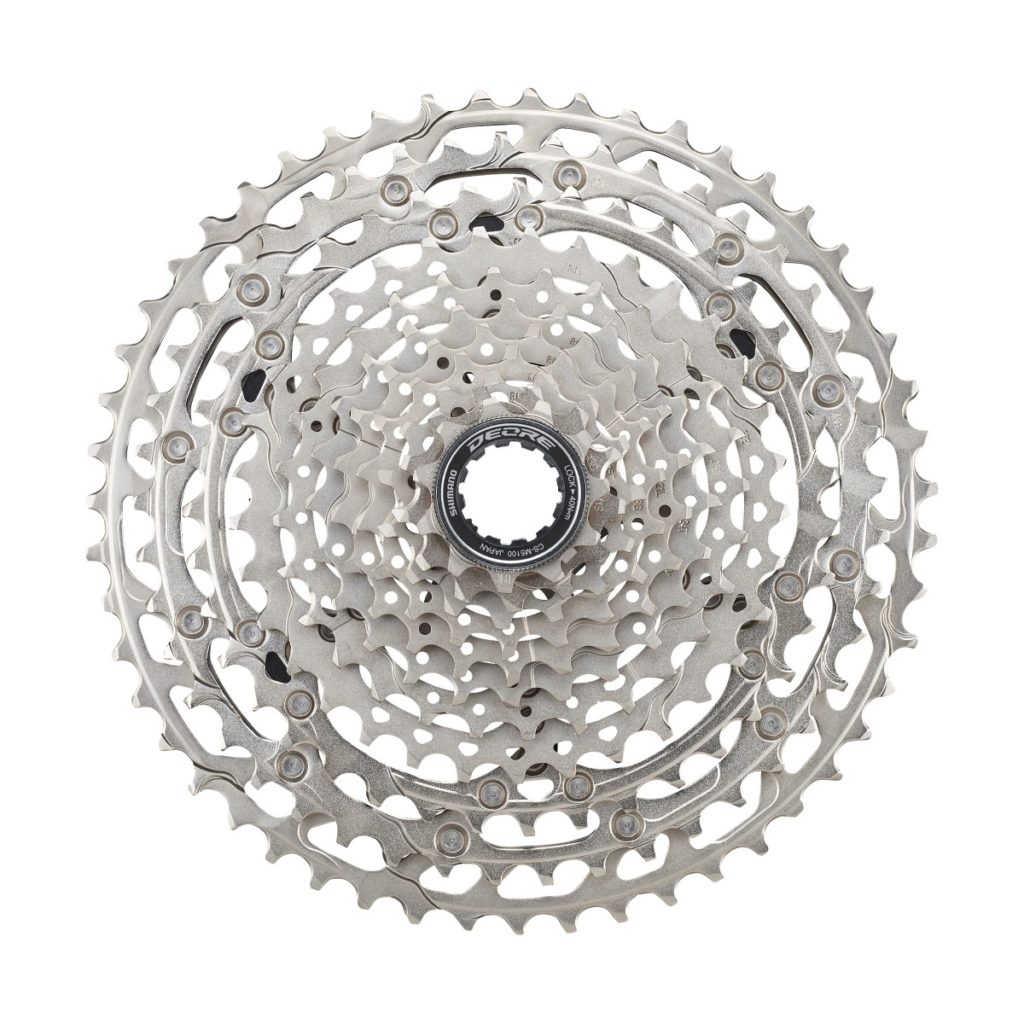
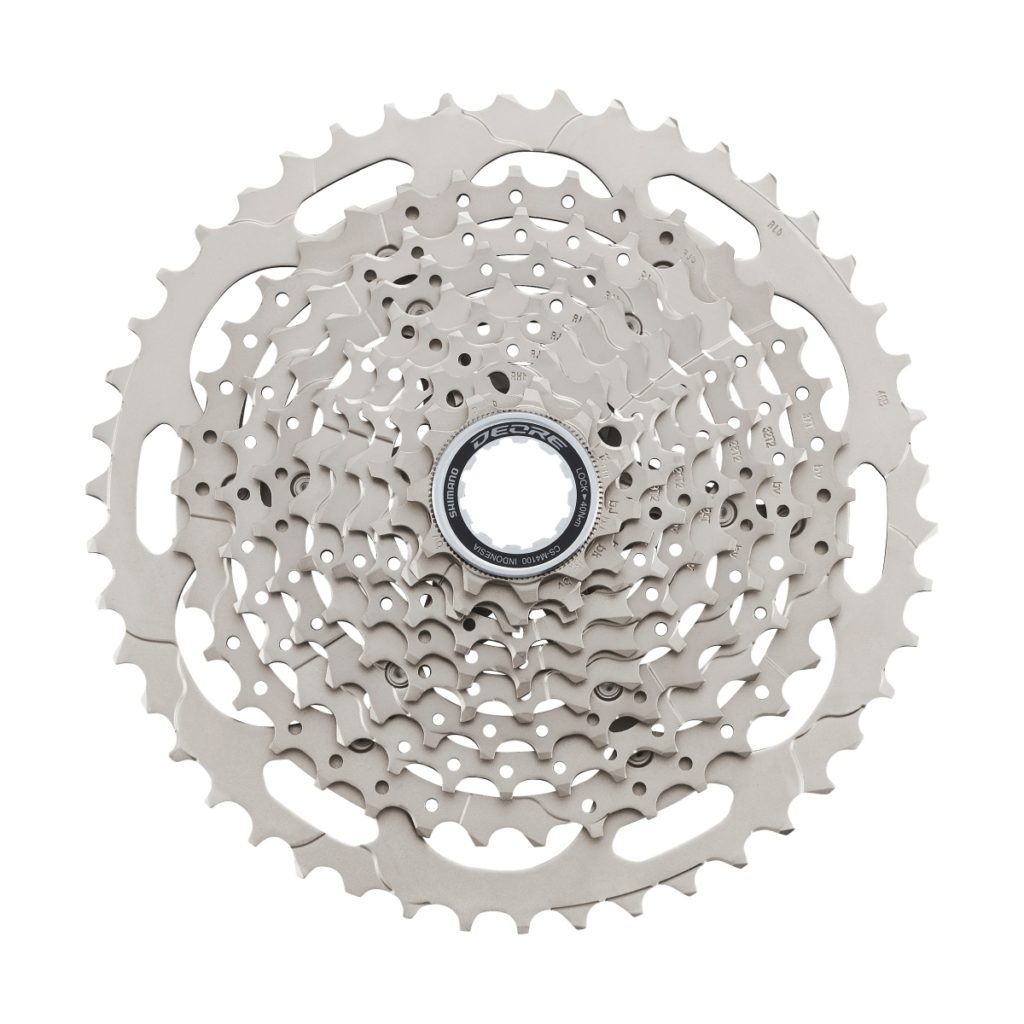
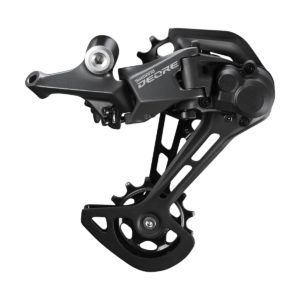
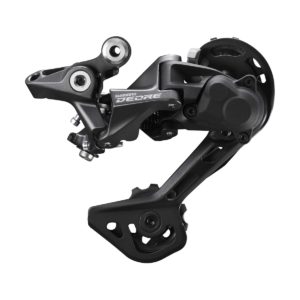
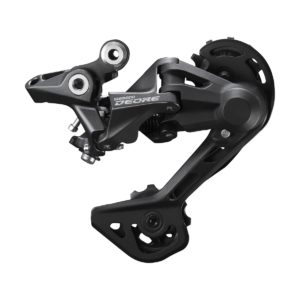








Leave a Comment